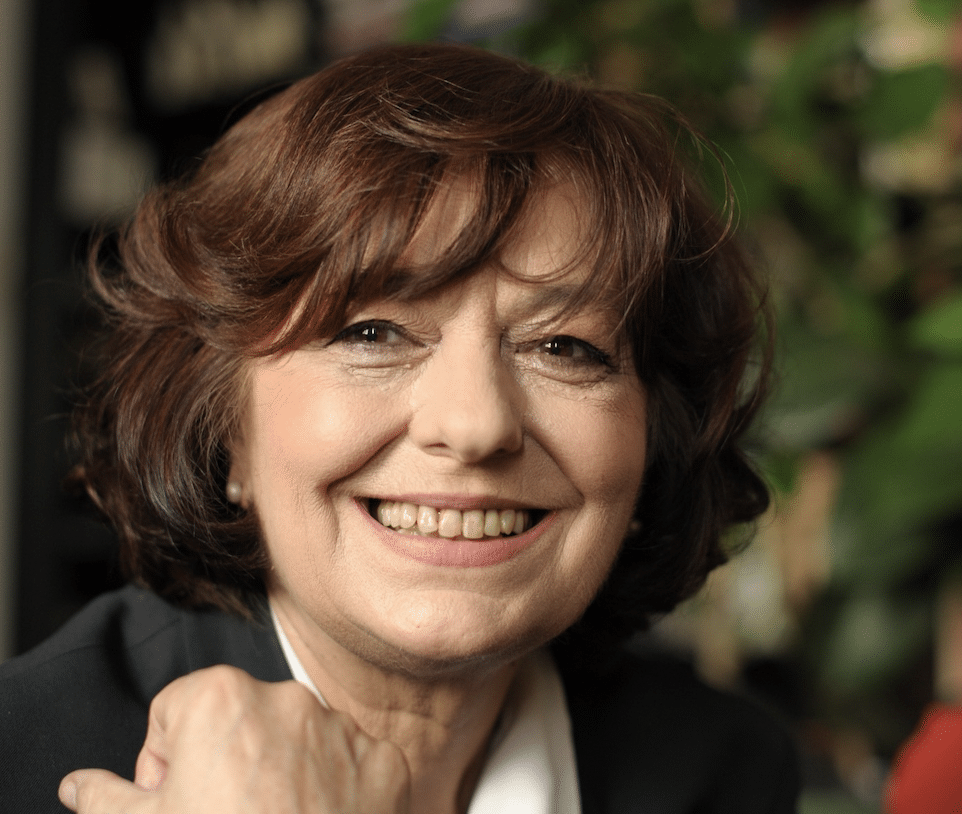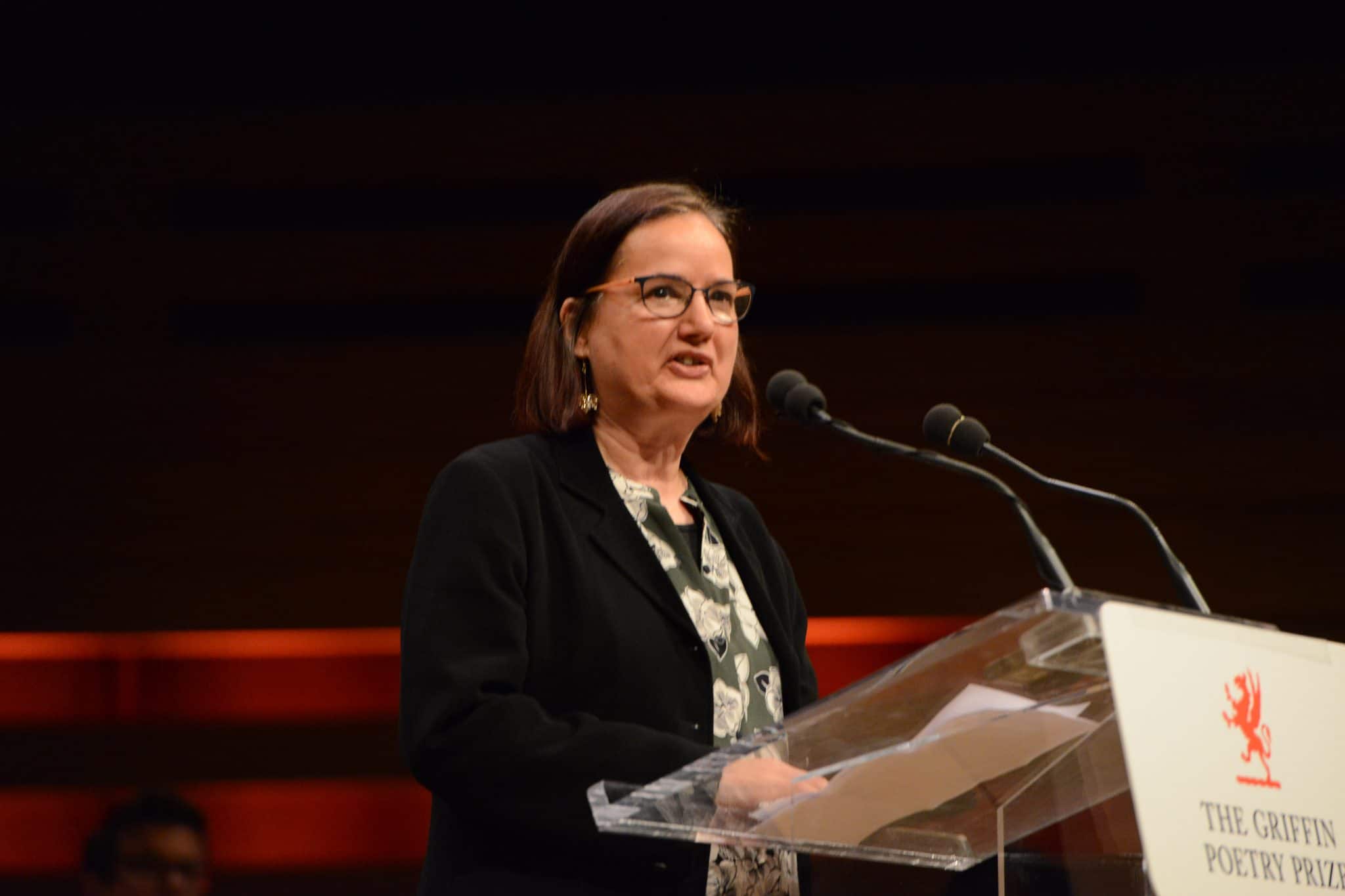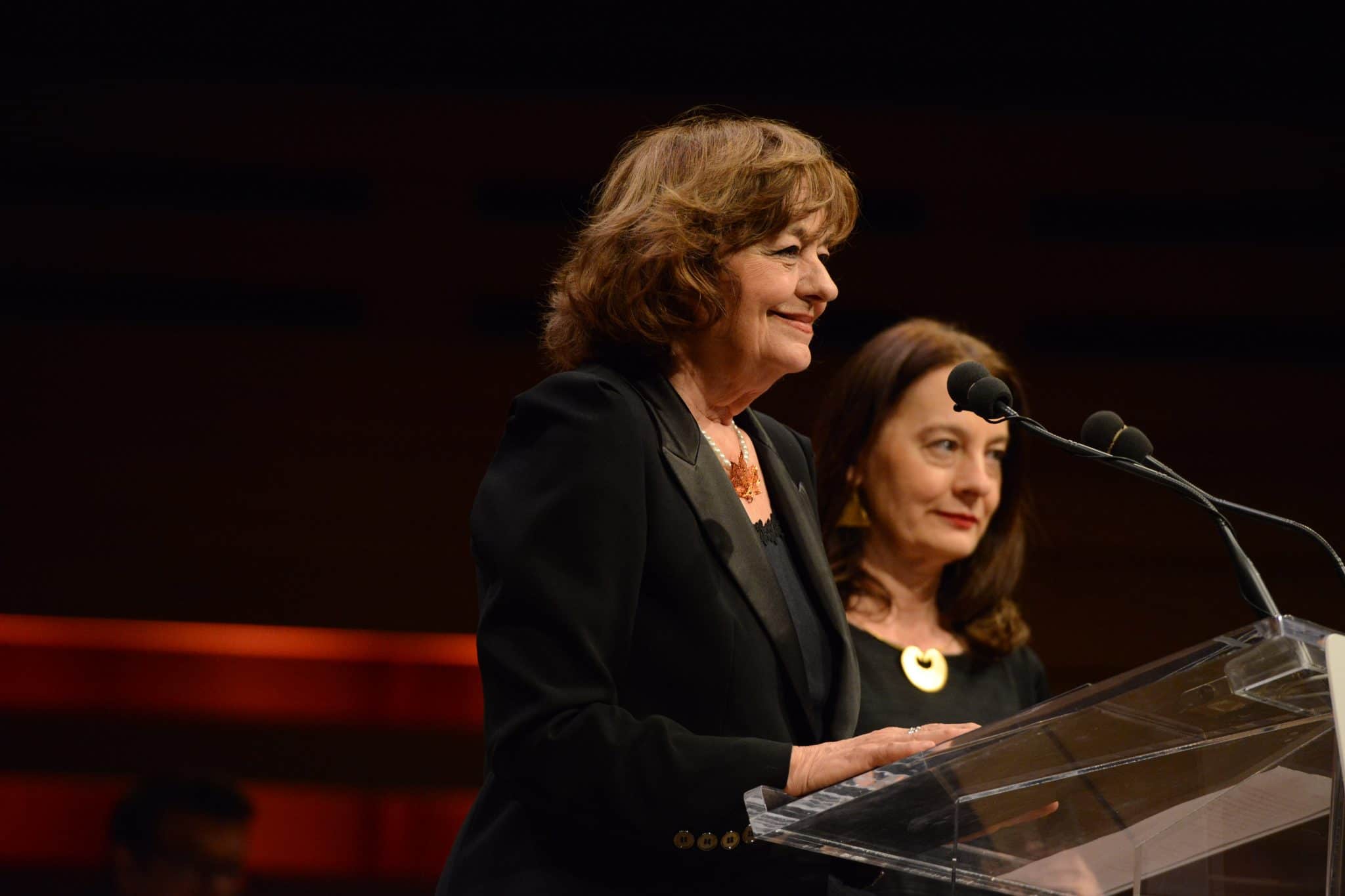
Romanian poet, essayist, and political figure Ana Blandiana received our Lifetime Recognition Award at the Griffin Poetry Prize shortlist readings on June 6.
Jo Shapcott pays tribute to Ana Blandiana

On behalf of the trustees of the Griffin Prize, I am pleased and proud to announce Ana Blandiana as the winner of this year’s Lifetime Recognition Award. We’re here to honour her literary achievements this evening as one of Romania’s finest poets and as an important, vital figure in world literature. But it’s hard to separate these from her political activism, her brave dissidence and her continued stance against the backward forces which work against political and cultural freedoms.
I first heard Ana Blandiana read her poems in London back in the early 1990s. I was lucky – she was already a legendary figure and we knew her from her 1990 Anvil Press collection The Hour of Sand, poems from 1969 to 1989, written during the time of her opposition to Ceausescu’s regime. In this period, she suffered many oppressions imposed by the communist state, including three bans on her writing. On stage that night in London, we saw a charismatic, inspirational figure, whose poems made metaphor meet emotion and thought with a direct force, an unselfconscious courage and which spoke through their sheer music of the importance of what language can’t touch but only reach for, of mystery and hope. She’s written, “Poetry is not a series of events, but a sequence of visions.”
Since that time, international recognition has caught up with her. For her contribution to literary culture and her outstanding record on human and civil rights, she was awarded the Legion of Honour in 2009. In 2014, the US State Department gave her the Romanian Women of Courage Award. She was given the European Poet of Freedom Prize in 2016 for her book of poems My Native Land A4. The “A4” in the title is crucial – it refers to the standard European size for paper – this – and it’s a neat acknowledgement of the wider importance of Romania’s place in Europe, poetically and politically, but as well as that, a new boundary for poetic thought and utterance.
After the fall of communism, Ana Blandiana was president of the Civic Alliance, the organization which helped realize Romania’s integration into Europe. This openness to the world is an inspiration to many of us at this point in history, and I’m thinking of my own country Britain among others in this, and I wish it understood the cultural and political urgency of the European project in the same generous way.
In 2004, she wrote that “poetry is born out of the desire to express what cannot be expressed, out of the obstinacy to define what everybody knows is indefinable, out of the need to offer something which people do not even understand they are in need of, out of a disquietude so difficult to bear that it becomes an affliction.”
We also tonight have the pleasure of welcoming her distinguished and long-time translator Viorica Patea. But now I have the overwhelming honour to invite Ana Blandiana to the stage to receive her award and to read to us.
Poetry is not a series of events, but a sequence of visions.
Ana Blandiana
BIOGRAPHY OF ANA BLANDIANA
Ana Blandiana, born in 1942 in Timisoara, is one of the most highly acclaimed contemporary Romanian poets. She has published fourteen books of poetry, two books of short stories, seven books of essays and one novel. Her work has been translated into twenty-six languages and collected in forty-seven books of poetry and prose to date.
A prominent opponent of the Ceausescu regime, her daring, outspoken poems, along with her courageous attitude in the defense of ethical values, has made her a legendary figure in Romanian literature. She suffered various reprisals and prohibitions under two Communist dictatorships, and three bans on her writing (1959-64, 1985, 1988-89). Over the years, her works have become symbols of an ethical consciousness that refuses to be silenced by a totalitarian government.
Blandiana was co-founder and president of the Civic Alliance from 1990, an independent non-political organisation that fought for freedom and democratic change. She also re-founded and became president of the Romanian PEN Club, and in 1993, under the aegis of the European Community, she created the Memorial for the Victims of Communism, a research centre for historical studies. Blandiana was awarded the highest distinction of the French Republic, the Légion d’Honneur (2009), and the US State Department acknowledged her with the Romanian Women of Courage Award (2014). Blandiana was awarded the European Poet of Freedom Prize (2016), for her book of poems My Native Land A4.
In English, an anthology of Blandiana’s poems, The Hour of Sand, was published by Anvil Press (UK) in 1990. A selection of her poems translated by Seamus Heaney appeared in the anthology, When the Tunnels Meet, ed. John Farleigh (Bloodaxe 1996). Her most recent collection of poetry, My Native Land A4, (Bloodaxe 2014) translated by Paul Scott Derrick and Viorica Patea will be followed by The Sun of Hereafter & Ebb of the Senses (2017).

- Ana Blandiana Facebook
- Ana Blandiana profile Encyclopædia Britannica
- Ana Blandiana and Hölderlin’s Eternal Question Glasgow Review of Books